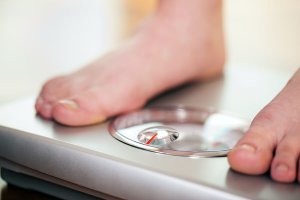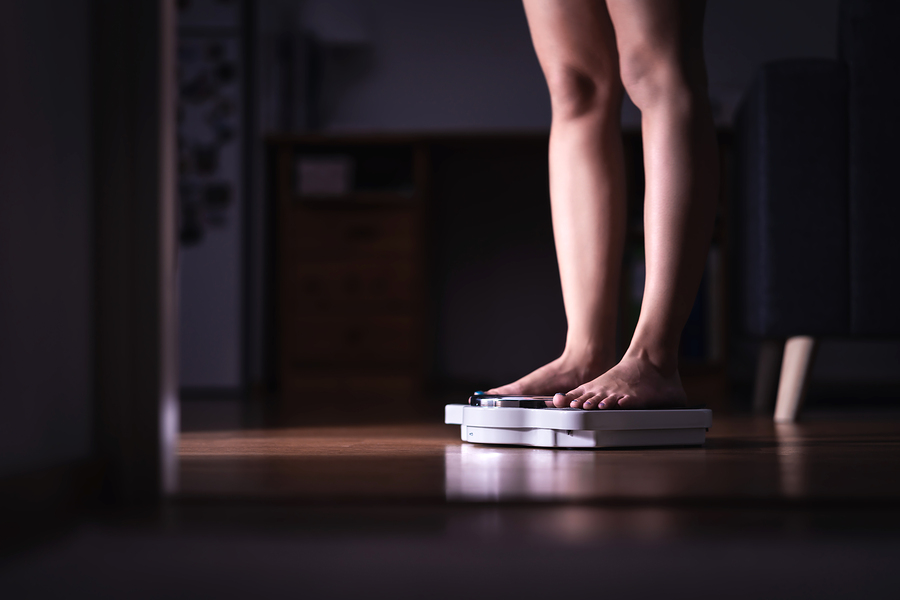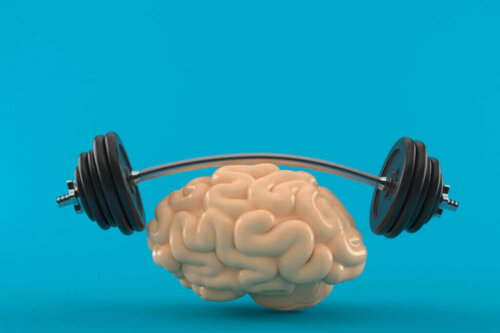Weighing Yourself Every Day: An Aid or Hindrance?

Be it for weight loss or gain, it seems that many of us have a personal battle with the scale. But did you know that weighing yourself every day might not actually be that helpful? In our post today, we’ll explain the reasons why you should avoid daily measurements and when you should just skip it to lose weight.
Weighing yourself every day: the wrong way
If you’re on a weight-loss or -gain plan, you probably think of the scale as the bad guy that’s unfortunately indispensable. But many of us make the mistake of stepping on the scale daily believing that today and yesterday will be completely different– but it’s simply not the case.
Some people even weight themselves in the morning and again at night! We recommend not weighing yourself every 24 hours for the following reasons:
1. Weighing yourself builds anxiety
So you’ve followed every step of your diet and workout plan… but when you weigh yourself, you still see the same number. Not seeing a change can make you anxious and doubtful of your diet and workouts. As a result, anxiety can push you to eat more or sleep poorly at night.
2. You can become obsessed
Along with anxiety, you can fall into an obsession. Weighing yourself daily makes you too keen on weight loss and gain. Additionally, it can make you too pendant on the results of your diet and exercise.
3. Weighing yourself: depression or frustration
“How on earth am I not losing even an ounce, after all of the effort I’m putting in?” This is a common question among people who weigh themselves daily. What follows could be depression or frustration that results from feeling unaccomplished.
Remember that any number that pops up on your scale is only temporary and prone to change. Also, keep in mind that weight isn’t always the best indicator of how effective a diet or workout routine is.

Don’t let your scale control your life, happiness or mood. Your scale is merely a tool that tells you how much you weigh. You might step on one day weighing the same yet thinner (with a noticeable difference in how your clothes fit) because you’ve lost fat and gained muscle.
So… how often should you weigh yourself?
When you weigh yourself, don’t forget to take certain factors into account. If you take the time to go through them, you can avoid the negative consequences of weighing yourself daily.
Remember that body weight fluctuates throughout the day. Weighing yourself before breakfast, after working out or dinner, and even after going to the bathroom will yield different results.
With that in mind, always weigh yourself at the same time of day (or as close as you can get). For example, if you usually weigh yourself at 5 pm after leaving the office, or at 8 pm after working out, stick to that habit.
Another important tip to remember is stepping on to the same scale. Every scale measures differently and digital scales might read differently than mechanical ones as well.
And lastly, remember to remove your shoes and strip down to the basics before stepping on the scale. When you weigh yourself, separate your feet to try to distribute your weight evenly.
Additional measurements
Some professionals also recommend other methods besides monitoring body weight to reach weight goals. For example, try taking a monthly photo or measuring your hips, waist or legs.

Of course, you can also take note of how your clothes fit as well (how a pair of pants or a jacket might feel looser or tighter) or even of the opinions of the people in your immediate social circles.
But, following your doctor’s or trainer’s instructions, every two to four weeks could be a good frequency for weighing yourself. By giving yourself time in between weighing sessions, you can see how you progress (or not) in your diet and workout plan.
If your scale isn’t showing you the numbers you want to see, remember not to get down about it. Obsessing over losing weight can become an illness. Instead of fretting, stick to a balanced plan that suits your needs. Don’t let go of your health over a few pounds.
All cited sources were thoroughly reviewed by our team to ensure their quality, reliability, currency, and validity. The bibliography of this article was considered reliable and of academic or scientific accuracy.
- Giménez Sánchez, J., Fleta Sánchez, Y., & Meya Molina, A. (2016). Coaching nutricional para la pérdida de peso. Nutricion Hospitalaria.
This text is provided for informational purposes only and does not replace consultation with a professional. If in doubt, consult your specialist.








